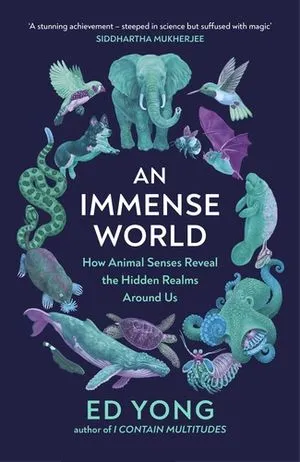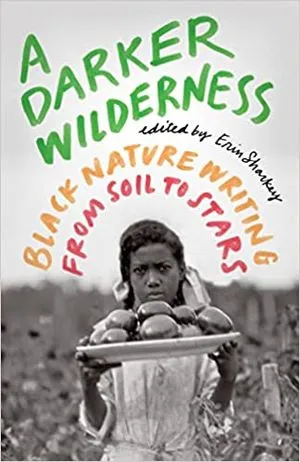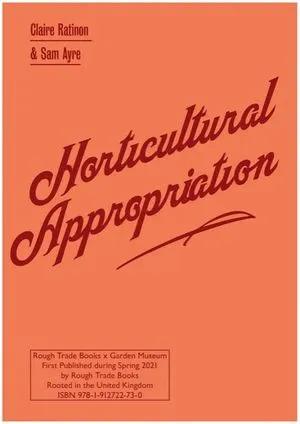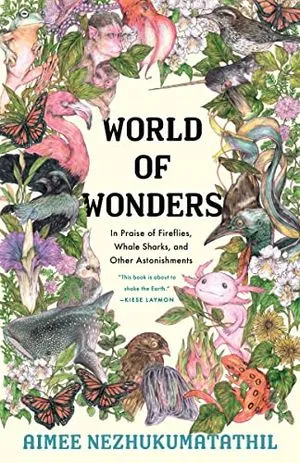
9 Nonfiction Books About Nature That Will Make You Fall In Love With Planet Earth
I had a real glimpse at how well our editors here at Book Riot know their contributors when I first asked to write a list of books about nature, because my editor’s response was: yes, but you can’t just make a list about Braiding Sweetgrass.
Now, that really thwarted my plans, because a list containing only Braiding Sweetgrass by Robin Wall Kimmerer was why I requested to write a books-about-nature post in the first place. I’m sorry to disappoint those who, like me, believe Braiding Sweetgrass should be a list on its own, but happy to announce that I have eight other books containing a serious love for nature to recommend, too.
If you haven’t read Braiding Sweetgrass (oh, you must!), or if you have and you’d like more — and more recent — nonfiction books about nature to add to your TBR, get your hiking boots on: here are nine titles you will absolutely love!

Braiding Sweetgrass by Robin Wall Kimmerer
Let’s cut to the chase and talk about the best book about nature out there (this is an unbiased and non-negotiable opinion, thank you).
Braiding Sweetgrass is part memoir, bringing together scientific and Indigenous knowledge. Kimmerer is a scientist and a member of the Citizen Potawatomi Nation, and she explains how Native knowledge can, in fact, consolidate scientific research.
This book has taught me so much about gratitude, respecting resources and, most importantly, how to correctly pronounce pecans — it’s the opening of the book.
I get teary-eyed when I talk about this book, and I am certainly responsible for more than half of its sales at the bookshop I work at. I hope to continue to convince Book Riot readers to pick it up, too.

There’s Something In The Water by Ingrid R. G. Waldron
There are several books in this list that approach the impact of colonialism, and this is one of them.
There’s Something In The Water dives deep into environmental racism and how Black and Indigenous communities in Canada are directly affected by it.
Nova Scotia is specifically at the centre of the study, but the conclusions taken from it can be applied in several other places around the world too.

An Immense World by Ed Yong
If you like your nature books to be focused on animals, you are going to love An Immense World.
Humans can go around the world noticing very little, but most animals do not have that privilege. Their direct contact with nature and how they interact with it is a matter of survival, and knowing this has helped us study the world we live in.
In this book, you get to have a glimpse of our planet through the senses of several other animals, seeing Earth as they experience it. It makes for a very magical journey.

The Home Place by J. Drew Lanham
There is something about nature memoirs that really make them special, and such is the case with The Home Place.
With several themes from family, identity, and race, to belonging, this book helps us see what it is like for the author to be an individual with a close-knit relationship with nature and their own roots.
In this book, you are welcomed along a journey you will likely never forget.

A Darker Wilderness edited by Erin Sharkey
For readers who love essays, this is a collection you will not want to miss.
There are so many compelling themes within this book, and its various authors do an amazing job of making you question who truly owns certain places, and how important nature is to our individual lives and those of the communities we are a part of.
It is another fantastic book on the ways Black people and their relationship with nature have looked across history.

From Gardens Where We Feel Secure by Susanna Grant and Rowan Spray
If you’re a fan of short essays, From Gardens Where We Feel Secure is a must-have in your library.
This title speaks about the importance of community gardens, and how often they are also a political act. A community garden belongs to everyone who takes care of it, which goes directly against our very own capitalist ways of living.
It is also about sharing, and the book is beautifully illustrated with plants and facts about them.
More than a book you are supposed to simply read and get on with your day, it is very much a call-to-action.

Horticultural Appropriation by Claire Ratinon and Sam Ayre
The title is an obvious pun, and you can guess the book’s contents by it: it is about colonisation and how we need to let go of its ways to be able to engage in the horticultural life.
The contents of the book are an exchange between an artist and a gardener, and it focuses deeply on the gardens and gardening life of Britain, as well as its history of colonialism.

World Of Wonders by Aimee Nezhukumatathil, illustrated by Fumi Nakamura
The way certain writers explain their love for nature almost makes you feel like you’re reading poetry, and World Of Wonders was written by an actual award-winning poet.
This is yet another amazing collection of essays with a very personal vision of nature, where the love for family is put next to the love for nature, and where home was found in the animals surrounding the author, rather than being one single material space.
The illustrations that accompany the book only make it more special.

Birdgirl by Mya-Rose Craig
There is so much love for birds out there: from memoirs like H Is For Hawk by Helen Macdonald, to the fictionalisation of bird enthusiast Len Howard real life’s in Bird Cottage by Eva Meijer, or even the entirely fictional Migrations by Charlotte McConaghy.
Birdgirl is Mya-Rose’s nickname, and she has seen an awful lot of birds in her lifetime — over 5,000 different types, in fact. She has also seen the damage done to them as Earth suffers from human mishandling.
Love for birds and their natural habitat are connected in this wonderful memoir, which also speaks of inclusion and diversity — and it happens to be beautifully written.
If you’re craving more nature books, here is a list with 20 must-read novels and nonfiction titles. I see a few favourites of mine there, too!






